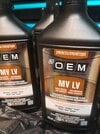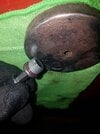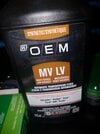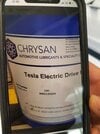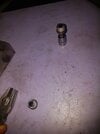This is the trend. The ZF 8-speeds used by BMW and many others were the first I saw get rid of the transmission fluid change, calling it a lifetime fluid. We have a Ram 1500 that has a ZF 8-speed and even in towing applications, Ram is still recommending no fluid change. Despite these claims, fluid change kits have emerged for almost every application.
Personal story: 2 years ago I took our BMW X5 for what seemed to be a “stumbling” or a “misfiring” problem. The diagnosis from the dealer was that it needed a Transfer Case replacement, costing approx. $6,700. I was surprised as we bought the vehicle new, it had below average miles and is driven pretty gingerly by my wife. With some quick research, I read online that the Transfer Case was sensitive to the quality of the fluid inside, so I inquired about whether we should start by replacing the fluid. I was told a fluid change would be $700, and the fluid alone was approx. $200, but it is a "lifetime" fluid and there isn't a standardized replacement procedure.
I took the vehicle back (incurring a $160 diagnostic charge) and the next Saturday I changed the fluid myself. The BMW-brand fluid cost me $42 retail online. It took me a couple hours to change it. Afterwards, during the first minute of the test drive I wasn’t sure the problem was resolved, but after 15-20 minutes of varied driving the fresh fluid worked through the clutch pack inside the transfer case and the problem was completely gone. Completely. We couldn’t be happier with the result.
It seems to me that recommending a nearly $7K repair as the only course of action, when $42 in fluid did the job feels almost criminal, but this is the direction the industry is going.




